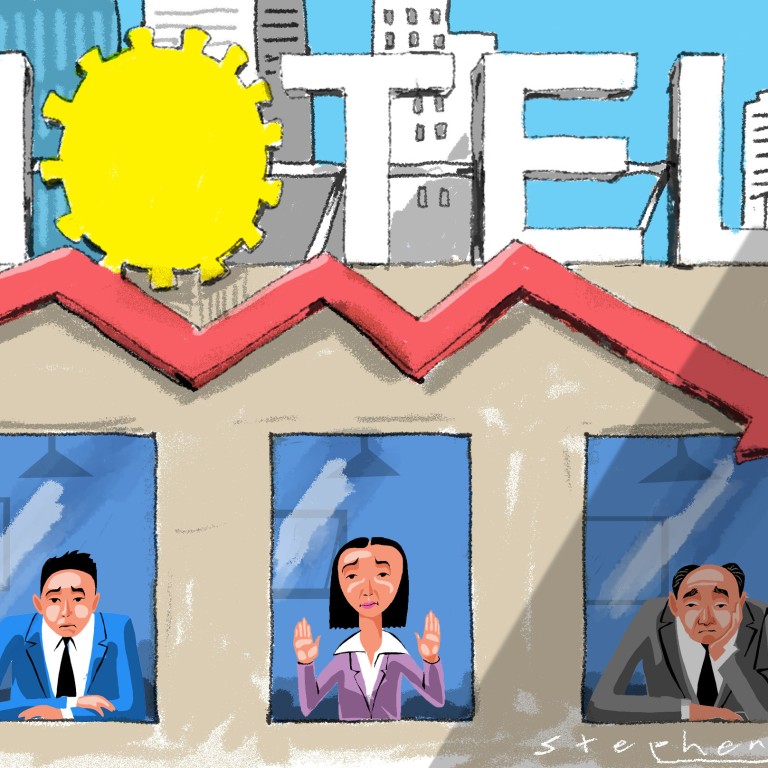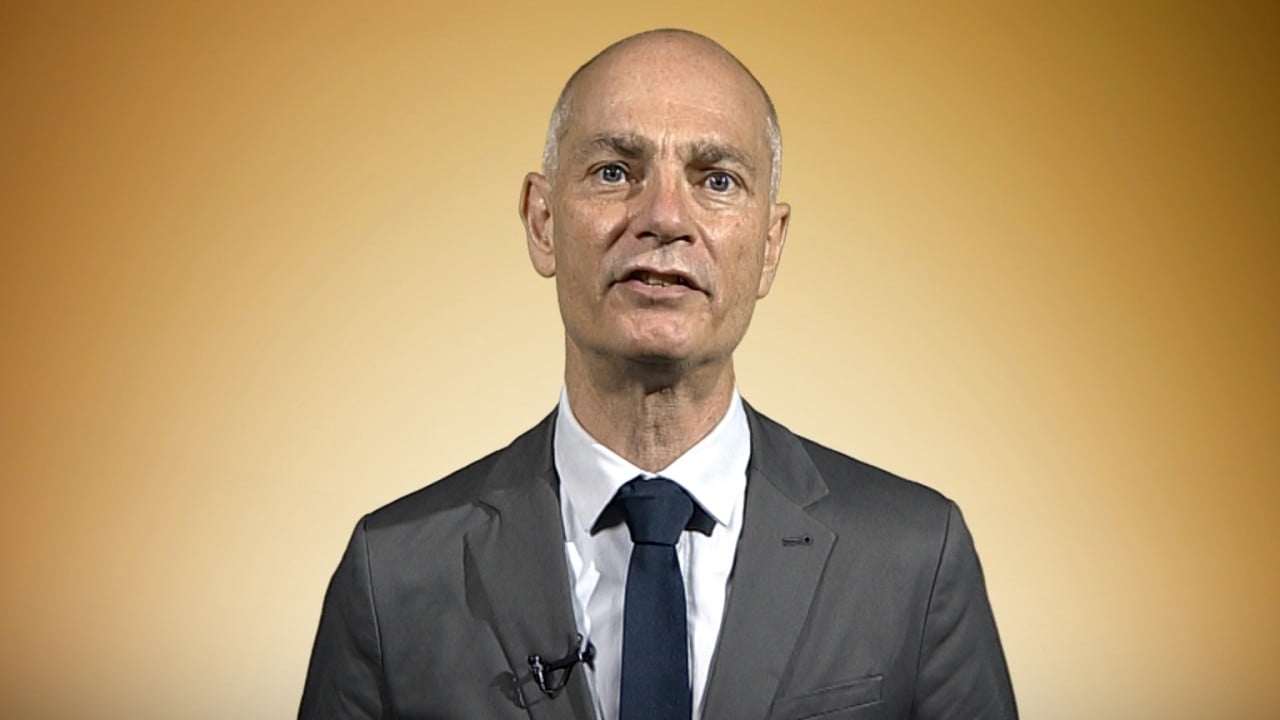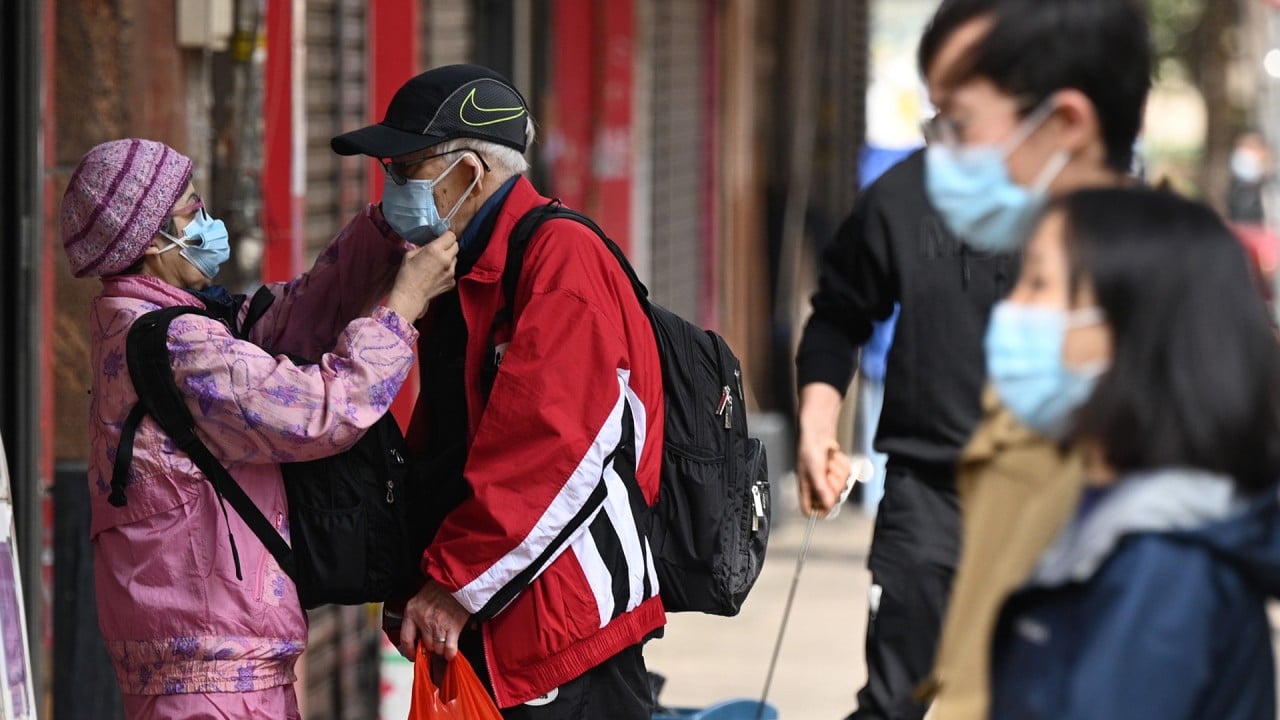
Hong Kong must ditch its damaging Covid-19 hotel quarantine policy to restore the economy
- With vaccination levels now among the world’s highest, Hong Kong is in a position to reconnect with the world, stem the economic pain and talent exodus, and start restoring its position as Asia’s financial hub and major tourist destination
Services, including financial services and everything related to tourism such as airlines, hotels, restaurants, shops and entertainment, represent more than 90 per cent of Hong Kong’s economy. All are at risk.
For the last three years of 2019-2021, Hong Kong’s net outflow of people numbered 59,100. But in the first three months of this year alone, the number has reached 140,000.
The leading cause of the increase, according to media reports, is the quarantine policy. “If the situation looks like 2023 is going to be more of the same in Hong Kong – hotel quarantine restrictions, all that sort of stuff – we’re moving to Singapore,” one expatriate told CNBC. “It gets to a point where it’s just too much.”
There are two reasons. The first is that most countries have lifted the Covid-19 restrictions that brought global travel to a standstill, and people can leave Hong Kong freely.
The second, more importantly, is that thanks to the quarantine policy – which requires travellers to pay for a week’s stay in one of the city’s handful of designated quarantine hotels – getting back into Hong Kong takes too long and costs too much. For those whose jobs require frequent travel, they have no choice but to avoid returning to the city.
A high-end suite can easily cost HK$280,000 (US$35,680) per week. And these rooms must often be fully paid in advance with strict cancellation and refund policies. Many travellers have found their hotel payments forfeited because of changed travel plans.
I am travelling outside Hong Kong for the first time in more than two years. When I tried to book a hotel room last month to come home, the earliest availability was in August. Unfortunately, my work requires me to travel in August (to Singapore). And work will continue to take me frequently to other countries before the end of the year. I am stuck abroad, as returning to Hong Kong for now is not an option.
End the Covid-19 hysteria, reopen Hong Kong and give us back our lives
This might all make sense if Hong Kong’s policy kept the city safer from the virus than in other places. But the data simply does not support it.
That surge can be blamed on Hong Kong’s low rate of Covid-19 vaccinations. At the beginning of the year, only about 61 per cent of the population was fully vaccinated, among the lowest in rich societies. More problematic was the even lower vaccination rate among the elderly: 49 per cent for those aged 60 and above.
Why were Hong Kong’s vaccination rates so low? Ironically, it was because Hong Kong’s policies were so successful at keeping the virus at bay for two years. Many thought the jabs were unnecessary – even risky, particularly for the elderly. As Bernard Chan, former convenor of the Executive Council, put it, Hong Kong became a victim of its success.
Success in a closed environment is never sustainable. The virus may be with us for a very long time, if not forever – variants of the 1918 Spanish flu are still with us today. The only protection is for everyone to be fully vaccinated.
It is therefore high time for Hong Kong to lift hotel quarantine requirements altogether. Timid steps such as reducing the number of days will not help much. It would only prolong the pain and hasten the loss of talent. Only by fully opening up can Hong Kong hope to restore and maintain its position as Asia’s financial hub and major tourist destination.
Weijian Shan is executive chairman of PAG, a Hong-Kong-based investment firm and author of “Out of the Gobi,” “Money Games” and “Money Machine” (forthcoming)



